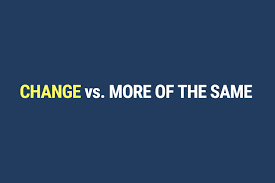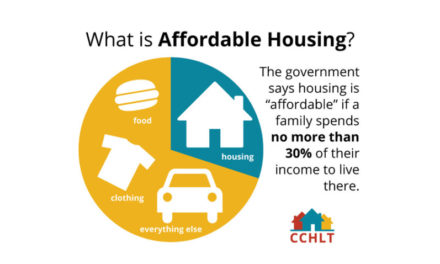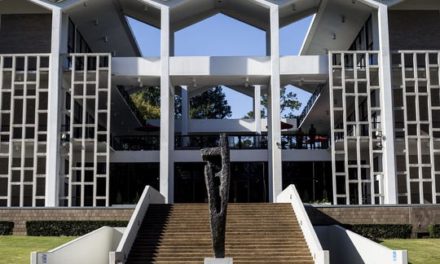For the worst possible reason, Memphis Police Department now embarks on what needs to be a systematic and comprehensive analysis of its culture, its practices, and job requirements.
Clearly, the department is not operating like it should. That was obvious before the killing of Tyre Nichols but in the wake of his death, it makes the review of MPD absolutely vital in addressing behaviors and ideas that have calcified from almost 50 years of police chiefs being chosen from inside MPD.
Ultimately, the review must understand that public safety and policing are not synonymous, and there are innovative and better ways to deliver both.
In addition, the widespread and deep concern, if not fear, about the rise and sporadic nature of crime is further evidence that something is not working. There was a time when the mantra was that people knew where the crime was occurring in aMemphis, and the solution was to stay out of those areas.
But no more. Now carjackings and robberies are happening everywhere, and as the crimes grow more brazen and brutal, grabbing more and more headlines, people who said they would never leave Memphis are considering it. And Memphis’ reputation for violent crime is affecting some companies’ abilities to recruit workers from outside Memphis.
No Simple Answers
Former Shelby County Sheriff and mayor Mark Luttrell said that effective crimefighting is a three-legged stool: suppression (arrests), prevention, and intervention. Memphis has put its emphasis on suppression, and while it has talked the talk about prevention and intervention, its efforts have been lacking.
It’s all the more surprising, considering that the City of Memphis’ own Five-Year Strategic Fiscal made the point that just hiring more and more police officers would not solve the crime problem. Another former county sheriff and mayor, Bill Morris, had made a point years earlier when he said Shelby County could not build its way out of crime with more and more jail cells.
The Strategic Fiscal Plan said: “The link between the number of police officers and crime rate reduction is, at best, elusive. Different studies have found different relationships and data suggest variation by city. Other approaches related to crime prevention, prosecution and punishment may have as much, if not more, of an impact on crime reduction and often come at a lower cost than sworn police officers.”
David Eichenthal of The PFM Group was lead consultant on the plan and author of a column in the New York Daily News that should have special meaning for the review of Memphis Police Department:
“Demands to “defund the police” are seen as radical; they’re not. While few are suggesting an end to policing, it is time to end the exceptional place that police — and public safety and law enforcement in general — have held in budget debates in cities and counties across the nation.
“I have worked on local government budgets for the better part of the last 30 years in New York and around the nation. During that time, the starting point for most debate has been to put police at the top of the priority list. This was born out of the explosion in crime — especially violent crime — in the late 1980s and early 1990s. At the time, there was essentially one play in the playbook: more police and more jail beds…
“Police and corrections became sacred cows in the local budget process. In the face of fiscal pressures, other departments had to make cuts, but police and corrections agencies were typically deemed “essential services” and distinguished from “discretionary spending” such as education or housing. When law enforcement agencies did make cuts, it was often to civilians — resulting in sworn officers performing the same work previously done by civilians at a higher cost.
“The call to defund the police is really a call to rethink how local governments budget for safety and justice. It rejects an approach that measures success on the amount of spending on law enforcement and recognizes that a prevention-first approach may be a better investment.
“This rethinking will likely lead to better policing. Arresting powers will be more narrowly applied and used only in response to more serious offenses. Fewer officers will also make it easier for departments to set higher standards for who becomes and remains as a police officer.”
Differentiating Functions
The advice of Professor Barry Friedman of the New York University School of Law is equally relevant for Memphis:
If public safety is the goal, it must be clear by now that some change is called for in our societal response to the problems police encounter. The police have not – we have not – adequately differentiated the functions that police officers are asked to perform. Much harm occurs because we send armed people – who are trained and see their mission as force and law – to deal with myriad problems not particularly susceptible to this solution.
What we need to do is reimagine the “public safety” function from the ground up. Society has specialized but the police have not. Society has come to see many of the problems the police confront as public health concerns, but we still meet them with the same response. We need an approach the differentiates functions and meets tasks with the set of skills that can perform them adequately.
“Policing imposes serious and extensive harm, from shootings and non-lethal uses of force, to stops, searches, arrests, and incarceration. All of this comes with pervasive racial disparities and seek to address them with ‘harm-regulating’ tools. Harm-regulation techniques are unlikely to be successful, however, as we see all too well in practice. Harm is not collateral to policing, it is innate to it. We call police crimefighters, we train them in using force and enforcing the law, and we deploy them to do this. So, it should come as no surprise that what we get is force, and law enforcement. And that this approach does little to address the sorts of social problems – from homelessness to substance abuse to mental illness – that police confront every day.
“Until we look through the harms to the core of policing, the best we can expect is incremental change. That is because harm is innate to policing. Tightening up the rules on things like stops and arrests is not going to make them go away; at best it will reduce them. Nor is tightening up those rules going to be easy: because courts are loath to second guess the decisions of officers, constitutional law afford the police enormous leeway.
“More centrally, when we focus primarily on the collateral harms of policing, we take our eyes off what ought to be the ultimate goal of society: public safety. Policing agencies like to say they are in the business of public safety. The question we need to be asking is whether public safety is what we are getting. To be sure, at the last, public safety must mean ensuring the safety of individuals from government. But it also means things like being able to get to school during the day without worrying about gunfire and having a secure place to sleep at night. It means being able to distinguish between a public health problem and one that immediately and necessarily implicates the criminal law; mental illness, homelessness, and substance abuse are the former, not the latter. It includes having some confidence that when the response to a serious crime, they will not increase the trauma.
“If we truly want to achieve public safety, we need to look beyond minimizing the harms of policing and focus on what exactly the police do, asking whether that furthers society’s aims. Policing in the United States tends to be one-size-fits-all endeavor that puts primacy on what is unique about the police – using force and law – to achieve ‘public safety.’ Force and law, though, are an odd match, at best, for the actual problems the police are called out daily to address.”
In disaggregating the reasons the police are called and in turn disaggregating the roles that police officers are unreasonably required to play, we set up the police and the public to come into conflicts that can be avoided with a more thoughtful understanding of how to match the needed skills with the kinds of calls coming into the police.
No Business As Usual
In disaggregating policing functions, Prof. Friedman looks at police as first responder, enforcer, mediator, social worker, traffic cop, proactive cop, and community police. Each of these requires a rethinking of police functions – our expectations as the public and their preparation as law enforcers.
It remains to be seen if City of Memphis will undertake the kind of honest, deep analysis that Memphis Police Department needs and Memphians deserve,
One thing is clear: the status quo is not good enough and something transformative needs to take place.
**
Join us at the Smart City Memphis Facebook page for daily articles, reports, and commentaries that are relevant to Memphis.






